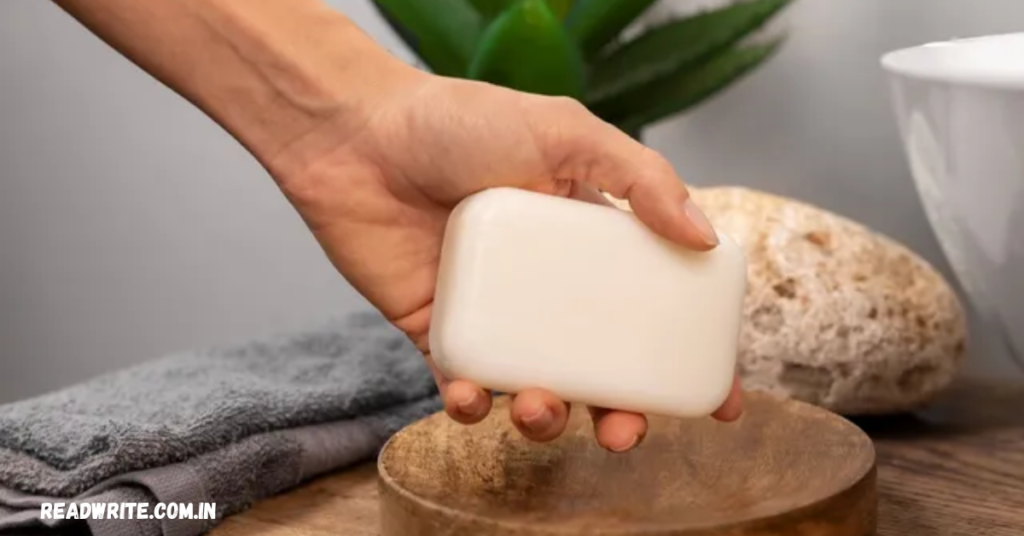Glutathione soap has gained immense popularity as a skin-whitening and anti-aging product. Touted for its ability to brighten the skin and reduce dark spots, it has become a staple in many beauty routines. However, while the benefits are widely advertised, it’s essential to understand the potential glutathione soap side effects to make an informed decision before using it.
This blog explores the advantages, possible risks, and tips for safely incorporating glutathione soap into your skincare regimen.
What is Glutathione Soap?
Glutathione is a powerful antioxidant naturally found in the body, responsible for detoxification and promoting overall skin health. Glutathione soap is infused with this ingredient, designed to:
- Brighten the complexion.
- Reduce hyperpigmentation.
- Combat signs of aging.
While many swear by its benefits, it’s crucial to evaluate its safety and suitability for various skin types.
Benefits of Glutathione Soap
Before delving into the side effects, let’s briefly touch on why glutathione soap is so popular:
- Skin Brightening
Glutathione inhibits melanin production, resulting in a lighter and more even skin tone over time. - Anti-Aging Properties
Its antioxidant properties combat free radicals, reducing wrinkles and fine lines. - Treating Hyperpigmentation
Glutathione soap is effective in fading dark spots, acne scars, and uneven patches. - Detoxifying Effects
The soap aids in removing toxins from the skin, promoting a clear complexion.
Despite these benefits, there are potential risks and side effects associated with prolonged or improper use.
Glutathione Soap Side Effects
While generally safe for most users, glutathione soap may cause certain side effects, particularly when misused or overused. Let’s explore these in detail:
1. Skin Dryness
One of the most common side effects is excessive dryness. The active ingredients in glutathione soap can strip the skin of natural oils, leading to:
- Flaky patches.
- A tight, uncomfortable feeling.
Tip: Use a good moisturizer after washing to combat dryness.
2. Skin Irritation
Glutathione soap may contain additional exfoliants or harsh chemicals, which can cause:
- Redness.
- Itching.
- Burning sensations.
This is particularly common in people with sensitive or reactive skin.
Tip: Always perform a patch test before full application.
3. Allergic Reactions
Although rare, some individuals may experience an allergic reaction to glutathione soap. Symptoms might include:
- Swelling.
- Rashes.
- Hives.
Tip: If you experience these symptoms, discontinue use immediately and consult a dermatologist.
4. Photosensitivity
Glutathione soap can make your skin more sensitive to sunlight, increasing the risk of:
- Sunburn.
- Hyperpigmentation.
Tip: Always wear sunscreen with at least SPF 30 when using glutathione soap.
5. Over-Exfoliation
Some glutathione soaps include exfoliating agents that, when overused, can lead to:
- Thin and sensitive skin.
- Increased vulnerability to environmental damage.
Tip: Limit usage to 2-3 times a week if the soap has exfoliating properties.
6. Dependency on Whitening Products
Over time, some users may develop psychological dependency, believing their skin will revert to its original state without continuous use.
Tip: Focus on maintaining a holistic skincare routine rather than relying solely on whitening products.
7. Possible Long-Term Risks
While there is no strong evidence of adverse long-term effects, using products containing unregulated or synthetic glutathione may pose unknown risks.
Tip: Choose products from reputable brands with transparent ingredient lists.
Who Should Avoid Glutathione Soap?
Glutathione soap may not be suitable for:
- Individuals with extremely sensitive or eczema-prone skin.
- Pregnant or breastfeeding women, as the safety of topical glutathione is not well-studied in these groups.
- People with a history of allergies to skincare products.
How to Use Glutathione Soap Safely
To minimize risks and side effects, follow these best practices:
1. Perform a Patch Test
Apply the soap to a small area on your inner arm or behind your ear. Wait 24 hours to check for any adverse reactions.
2. Start Slowly
Begin by using the soap once or twice a week and gradually increase frequency if no side effects occur.
3. Moisturize Regularly
Prevent dryness and irritation by applying a hydrating moisturizer immediately after washing.
4. Apply Sunscreen Daily
Protect your skin from harmful UV rays, especially if your soap increases photosensitivity.
5. Avoid Overlapping Products
Do not combine glutathione soap with other strong whitening or exfoliating products to avoid overloading your skin.
Alternatives to Glutathione Soap
If you’re concerned about the side effects of glutathione soap, consider these natural alternatives for skin brightening:
- Aloe Vera Gel
Known for its soothing properties, aloe vera can help improve skin tone without harsh chemicals. - Lemon Juice
A natural bleaching agent, lemon juice can reduce dark spots. However, it should be used sparingly to avoid irritation. - Turmeric Paste
Turmeric has anti-inflammatory and brightening properties, making it a safer alternative for sensitive skin.
When to Consult a Dermatologist
If you experience persistent side effects or have concerns about using glutathione soap, seek professional advice. A dermatologist can recommend suitable products based on your skin type and concerns.
Conclusion
Glutathione soap offers promising benefits for those seeking brighter, more even-toned skin. However, it’s essential to be mindful of the side effects of glutathione soap and use it responsibly. By following the precautions outlined in this guide, you can enjoy its advantages while minimizing potential risks.
Always prioritize your skin’s health and consult a dermatologist if in doubt. Remember, healthy skin is beautiful skin!

